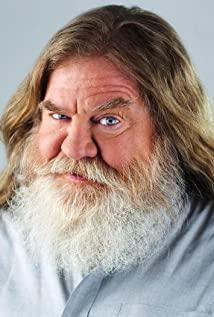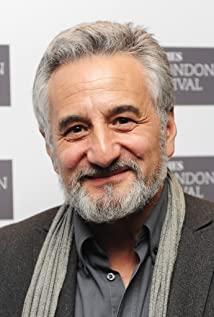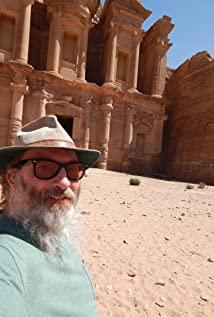He is a symbol of the country and a hero of the world.
This is the commentary on the advanced deeds of Comrade Steve Rogers in the Smithsonian Museum in "Captain America 2". In fact, the American team's whole body from temperament to attire shows a kind of "American spirit" stance, in which apart from the decent characteristics that are universally applicable to justice and justice, there is no doubt that it is him who really has the taste of America. Persistent defense of civil liberties. This point runs through almost all the movies in which he appears, from the fight against fascist totalitarianism in "American Team 1", "Reunion 1" not surrendering to Rocky's pressure to kneel down, to "American Team 2" carrying fugitives on his back. The burden of rebelling against the giant surveillance program of S.H.I.E.L.D. (actually Hydra), and "American Team 3", stubbornly opposed the United Nations "Sokovia Agreement"...
However, this almost stubborn guardian of freedom is only our intuitive impression of the US team. In the real world, whether the actions of Eagle Sauce/US Emperor seem to you to be the light of a beacon of democracy or the hypocrisy of double standards, it has undoubtedly set up a "free world" for itself (you can put quotes). Label. So, what exactly is the set of values of "freedom" in the United States?
Freedom can undoubtedly refer to many different or even conflicting value systems. From the ancient Chinese scholars’ inner freedom of "the vastness is like protecting the wind", to the dialectics that recognizes the truth and enters the free world as advocated by Hegel’s lineage, the "freedom" is There have been endless ways to discuss ways of thinking, and under the label of "freedom", the objects they discuss are not even the same thing. Given that we are discussing the role of Captain America in the Marvel Cinematic Universe, there is a label we often use to put on Hollywood movies that may give us some inspiration at this moment——
Personal heroism.
This is a slightly ambiguous word. "Hero" undoubtedly carries a strong compliment, but when these six characters are combined, it is often used to contrast with the traditional collectivism in socialist literary and artistic creation to criticize the lack of collective in American movies. Conceptual creative standpoint. And now when we say this word, it's like the unit leader's reproach to reckless subordinates, with a trace of compassion and praise, but we still have to condemn this unorganized and disciplined behavior from a politically correct standpoint.
But this understanding of individual heroism has captured the core of the American spirit to a certain extent. "Unorganized and undisciplined" means that the protagonist's principles in personal heroism movies do not come from organized superior orders, not from bureaucratic rules and regulations, but only from their own conscience and conscience. As a value stand. This way, of course, it will inevitably sometimes conflict with the so-called "collective", but it also avoids the occurrence of the "banal evil". "Individual heroism" removes the "hero" and applies it to specific ordinary Americans. In fact, it is individualism. Individualism means that individuals practice freedom and assume responsibility.
On this issue, the best way to test the authenticity of individualists is their attitude towards crime and punishment. When inspecting the "Insight Project", the US team had a conversation with Nick Fury:
We can suppress the threat before it appears. "
"Aren't you guilty first and then punished?... The people who point their guns at the whole earth are also called protection."
"You have done disgraceful things."
"Yes, we have compromised. Some things make our conscience uneasy and sleepless, but we are to make people free. This is not freedom, this is fear."
In this dialogue, there are six concepts that can be divided into two groups: "crime", "punishment" and "freedom"; "threat", "suppression" and "fear". The logical chain of the former is as follows: man has free will, he can make his own free choice, he chooses to do evil, that is, he should bear the responsibility for his criminal behavior, that is, punishment; the logical chain of the latter is: man will do evil (no Must be out of free will), when threats may arise-not after they have committed evil-they should be suppressed in advance to deter potential perpetrators with fear.
These two ideas are therefore very different. In terms of the objects of concern, although the former is a "crime-punishment" model, it still pays attention to the perpetrator as an individual. The criminal behavior of the perpetrator is the cause of the punishment, and the punishment is also and only the result of the perpetrator's behavior. Punishing the perpetrator is not based on other considerations, but only because he committed the crime; and the perpetrator should be punished just because of his criminal behavior, and it cannot be excused from other reasons, such as the oppression of the social structure or congenital genetic defects. You can therefore not be held responsible for your actions.
The traditional criminal legal system is mainly based on this model, even if there are special cases, this special case is precisely to highlight the characteristics of the "crime-punishment" model. For example, there is an important concept in the criminal law called "expected possibility", which means that we can expect the perpetrator to make a legal act from the specific circumstances of the act. Otherwise, even if the perpetrator has committed an illegal or criminal act, he will not be guilty. The law is not too difficult for others. For example, the law cannot require a person to escape by stealing someone else’s motorcycle in an emergency situation of being pursued and killed. The existence of this special case further demonstrates the free will background of this model, because in a specific emergency, a person who steals a motorcycle can already be regarded as basically having no freedom to choose his own behavior. After all, if you don’t steal If you drive a motorcycle, you may lose your life. Since the compulsory apportionment of donations is not called charity, the act of being forced to do evil is hardly a crime.
In contrast, the latter's thinking does not care about the individual "potential perpetrator", and its purpose is not to hold the perpetrator accountable. As long as they pose a threat to the majority of society, SHIELD can eliminate the threat in the bud in advance. This kind of thinking actually turns the "potential perpetrator" into another and does not consider it as a person who can act freely, but as a threat that needs to be dealt with, like a cold bomb or a cold bomb. Only the ruthless beast that escaped the zoo. So even when S.H.I.E.L.D. Bureau says "we are protecting the freedom of the people", the freedom it focuses on is also a collective "freedom", not the individual freedom of everyone including the freedom of "potential perpetrators." .
Not only that, the effectiveness of this model is also based on the assumption that human behavior can be predicted. Regardless of how much scientific support this hypothesis can get, the key point is that this hypothesis itself indicates that free will does not exist. So there is not much persuasiveness to talk about suppressing threats in advance to maintain freedom.
Of course there is such a voice in criminal law theory. Lombroso's concept of "natural criminals" is one example. Lombroso’s discovery of "natural criminals" seems to be shrouded in a strong mystery, and it seems that he has his own destiny. He found that no matter what kind of remedy is made in education and so on, some people are born to want criminal. The result that can be logically derived from this is: if "natural criminals" exist, they can be identified by scientific means, and measures can be taken to prevent them from committing crimes in advance, including removing them from the body.
So here comes the question: even if this prediction is completely technically achievable, if a part of the other is to be distinguished as a threat to the people's freedom, then who has the right to make this distinction? It is certainly not wise to put such a huge amount of power in the hands of individuals, and it is the same to put it in the hands of institutions. In the movie, S.H.I.E.L.D. is infiltrated by Hydra; historically, attempts to achieve once-and-for-all solutions have often brought bigger problems. Both the Nazis and the Soviets tried to use certain "scientific" laws to identify the threat of human civilization, but the extreme right was based on the biological race theory, and the extreme left was based on the sociological class theory. , The Slavs took the knife, and one attacked the capitalists, rich peasants, and landlords and local tyrants. The two seem to be very different, but Hitler's concentration camp and Stalin's labor camp are essentially the same.
In the final analysis, whether or not to care about the existence of free will is the fundamental difference between these two ways of thinking. A true individualist like the US team will naturally choose the former. Values are incommensurable. If you choose freedom on the balance, you have to sacrifice safety to a certain extent. So he said: "The price of freedom is high, it has always been the case. I am willing to pay that price. If I am the only one, it does not matter. But I believe that I will not be the only one."
Why is he willing to do this?
Because his personality is a representative of the American spirit. The background of the spirit of the founding of the United States is the Puritan ethics brought by the "Mayflower". Just like in "Avengers 1," even when he realized the real existence of Norse gods such as Torroki, he still said "I only know one god".
Christianity is strictly monotheistic, and Puritanism-distinguished from Catholicism and Eastern Orthodox-is the most faith-emphasized sect in Christianity. What does it mean to emphasize faith most? This means that the Puritans believe that faith must be unconditional, and no matter what pressure there is from the outside world, they must adhere to the faith in their hearts and act in accordance with the faith. Reflected in hermeneutics, unlike the Catholic Church’s development of a set of logical and rational interpretation methods, the Puritans believed that the meaning of the Bible is its literal meaning, and people must strictly follow the Bible to understand it word by word, and no additional explanations can be added. There is an explanation, that is, using human thinking to steal the position of God. And this is exactly the fundamentalism that has replaced fakes. Fundamentalism is different from other mainstream religions in that, in order to spread and develop, mainstream religions are willing to make a greater degree of compromise with the real world, follow natural human nature, and suppress excessive desires after basic human nature is satisfied. For example, the sinicization of Buddhism makes it willing to accept the transformation of filial piety. The mainstream Christian sects entering China also need to develop a set of interpretation methods to rationalize the various ancestral worship behaviors of Chinese Christians during traditional festivals.
But monotheistic fundamentalism would not do this. Shi Zhan once cited the "Book of Job" of the "Old Testament" as an example to show the logic of the Puritan faith. Job is an extremely pious believer, but he has suffered all kinds of inhuman sufferings, so that he also began to complain to God. And God’s response to this was not to answer Job’s question, that is, the reason for his suffering, but to emphasize his own will:
Where were you when I laid the foundation of the earth? If you are smart, just talk about it! If you know, just say, who is the yardstick? Who pulls the guideline on it? ... Can the arguing contend with the Almighty? Those who argue with God can answer these! ...How can you discard what I have drawn up? Can you condemn me so that you can justify yourself? "
The reason why Job feels that he has reason to complain to God is because he believes that he should be rewarded for good, not bad. This is to add conditions to faith, because there are good rewards, so pious. And this is not faith, but puts the law of cause and effect above God, and requires God to give back to the devout in accordance with the law of cause and effect. But piety is a blunt proposition, no matter what the result is, do what you should do.
It is this unconditionality that reflects the preciousness of free will, because if beliefs are equipped with conditions, such as acting on the basis of "good people get rewards, bad people get bad rewards," then this is to reduce people's autonomous actions back to Pav. Love's conditioned reflex is tantamount to saying that through cost-benefit analysis, cleverly designing reward and punishment incentive mechanisms can control people's behavior.
Arendt made a wonderful distinction between "action" and "behavior". Just like the "Insight Plan" algorithm, behavior is predictable, and its essence is not freedom, but the embodiment of social functions in individuals. The most obvious manifestation of this is in the behavioral sciences such as the public choice school, which has been dubbed "rational choice". Their argument has preset a rational standard of behavior for people in advance, and this is actually an objective standard outside of people. Under the name of rationality, people just have no freedom. When referring to the rise of behaviorism, Arendt said that the problem with modern behaviorist theories is not that they are wrong, but that it unfortunately correctly reveals that every move of people in modern society is becoming more and more. It can be expected that people's spontaneity and creativity are disappearing, and this is the real danger.
Action is a unique activity of man. According to Arendt's explanation, in this activity, man is not related to nature or the world of things, but to the world of man. Action is a completely free activity of human beings, not subject to inevitability, nor to utilitarian motives. Action reflects the possibility of human beings to make new innovations, and it is also the possible hope of human beings. Action is the way to realize the nature of human freedom.
Therefore, to say that Puritan ethics is the founding spirit of the United States does not mean that the United States is united with church and state, and that specific doctrines are established as national laws, but that this belief structure of Puritanism has deeply affected Americans’ foundation in freedom. Individualism above the will . Everyone is free to make their own independent choices in accordance with their inner moral concepts, and must be unconditionally responsible for their actions, and cannot be attributed to any external pressure, and cannot betray their own norms or beliefs because of the persecution of objective conditions. . This is probably the essence of freedom-at least American freedom.
At the same time, Puritan ethics also imprinted Americans' understanding of freedom in another aspect. Since the value of freedom is directly defined by faith rather than derived, without additional conditions, it is naturally not affected by region. This is the psychological reason why Americans regard freedom as a universal value. The Puritans have an extremely strong passion for salvation and want to spread the Lord’s gospel to all people. The spiritual structure of the Puritans can naturally become the missionary belief of freedom as a universal value. We often distinguish between Europe and the United States and the United States, but from this point of view, even the United Kingdom and the United States also show differences here. Although Tocqueville said that the Hayek-style spontaneous liberal order cultivated by New England township autonomy occupies a prominent place in the founding spirit, after all, compared with their British ancestors, they no longer limit "freedom" to That kind of "British freedom" born out of tradition breaks through geographical limitations and truly establishes the voter mission of "manifest destiny, unity as one" . For this reason, even if the Prism Project and the Snowden incident exposed the tip of the iceberg, regarded as the all-seeing eye of Big Brother under the pedestal of the Statue of Liberty, the image of the "little Brooklyn man" who rebelled against his own state apparatus could still be made public. It’s not just the “people’s sentiments” that Tocqueville considers to be more important than a nation’s system, “a nation’s only strong and durable force”. "——The embodiment?
Display: "The Three Sects of Apocalypse and Political Order "
Chen Wei: " Arendt's Political Ideal "
View more about Captain America: The Winter Soldier reviews











